This article will help you understand the basics of sperm health. You’ll learn about what affects sperm quality, how sperm develop and function, and common myths about male fertility. Whether you’re just curious or actively trying to conceive, this guide aims to provide helpful information in an easy-to-understand way.
What’s In This Article?
A Quick Rundown of the Basics
Sperm are made in the testicles through a process called spermatogenesis. It all starts with special cells called spermatogonial stem cells, which are the raw materials for making sperm. These cells divide and transform through several stages, turning into more specialized cells each time. This process is controlled by hormones like testosterone and FSH.
Over about 64 to 72 days, these cells become mature sperm cells. Once fully developed, the sperm move to the epididymis, a tube where they learn to swim and get ready to fertilize an egg.
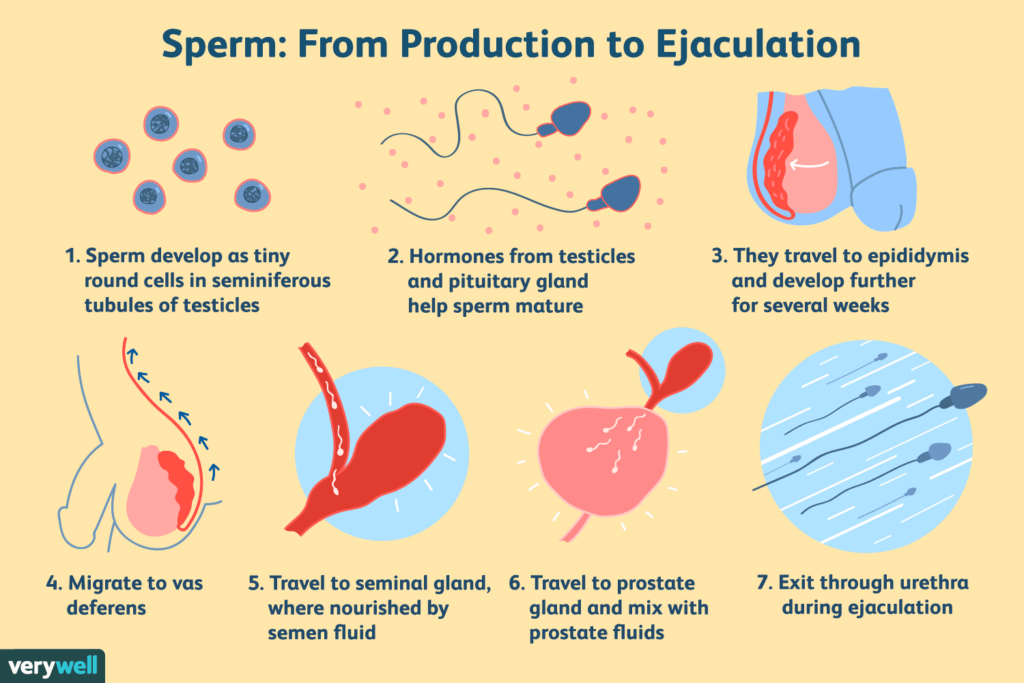
The Importance of Sperm Health
Sperm health is important if you’re thinking about starting a family (among other reasons, of course). Healthy sperm increases the chances of conception and can influence the health of your future child. High-quality sperm are active, well-formed, and plentiful, which are all necessary to meet and fertilize an egg successfully. In short, the healthier your sperm, the better your chances of becoming a parent.
General reproductive health means taking care of your body so that all the parts involved work well. For men, this includes having healthy testicles that produce good sperm and enough testosterone. It also means having a good balance of hormones and avoiding things that can harm your reproductive system.
What Affects Sperm Health?
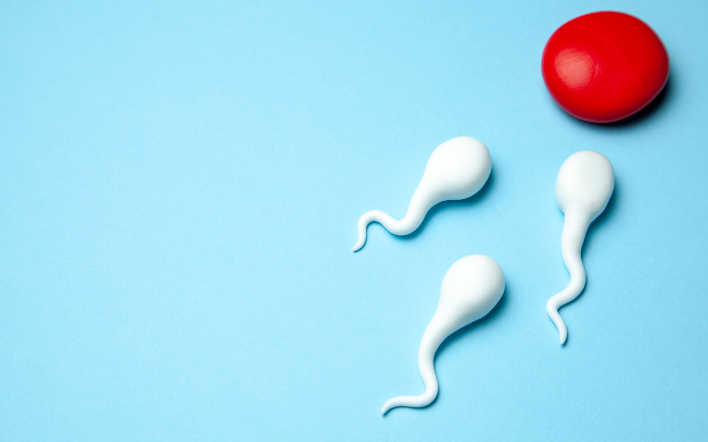
The Role of Genetics
Your genes are like a blueprint for your body, affecting everything from your eye color to your sperm health. Some genetic conditions can mess with your sperm count, shape, and movement. For example, issues like Klinefelter syndrome or certain Y chromosome problems can lead to lower sperm production or even infertility. Genetics can impact how well your sperm work in a few ways:

- Count: Some genetic issues can cause your body to produce fewer sperm.
- Motility: Genetic conditions can make it hard for your sperm to swim properly, which they need to do to reach the egg.
- Morphology: The shape of your sperm can be affected by your genes, and oddly shaped sperm might not work as well
Environmental Impact
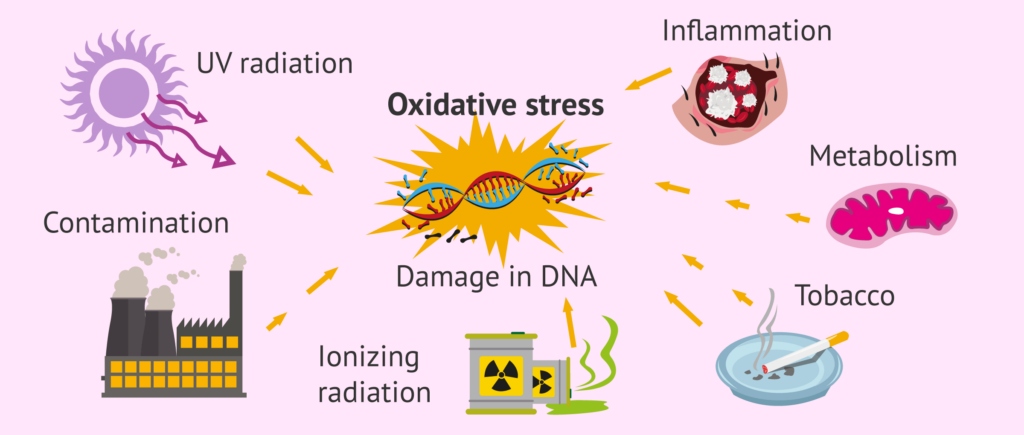
Pollutants & Toxins
- BPA: Found in some plastics, BPA can mimic hormones and disrupt sperm production. This chemical is often found in water bottles, food containers, and other household items.
- Pesticides: Used on crops, these chemicals can harm sperm if you’re regularly exposed to them. These can be absorbed through food, water, or even air in agricultural areas.
- Heavy Metals: Lead and mercury are especially harmful and can reduce sperm count and motility. These metals can be found in contaminated water, fish, and certain work environments.
- Dioxins: These are by-products of various industrial processes and can be very harmful to sperm health. They can lead to decreased sperm count and motility.
- Air Pollution: Exposure to high levels of air pollution, such as particulate matter and nitrogen dioxide, can lead to oxidative stress and damage sperm DNA, reducing motility and increasing abnormalities.
Did You Know?
Poor ventilation and exposure to indoor pollutants like cigarette smoke, mold, and household chemicals can also harm sperm health
Radiation Exposure
Radiation and electromagnetic fields from electronic devices can negatively affect sperm health. Studies show that exposure to these fields can decrease sperm motility and increase oxidative stress, leading to sperm DNA damage. Using protective measures, such as placing laptops on desks and using headsets for phones, can help mitigate these risks.
- Laptops: The heat and radiation from laptops can reduce sperm quality, especially when used on your lap for long periods.
- Phones: Keeping your phone in your pocket might expose your testes to radiation, which can also be harmful.
Health Conditions
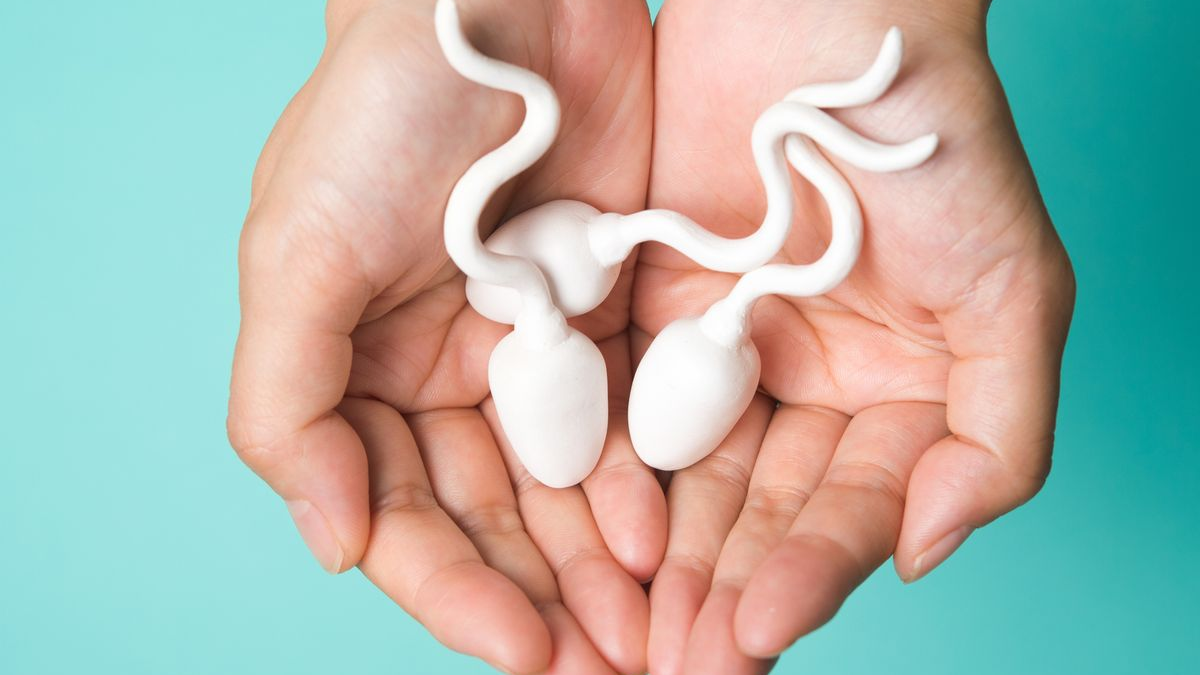
- Varicocele is a condition that involves enlarged veins in the scrotum and can lead to decreased sperm quality. It’s one of the most common reversible causes of male infertility.
- Sexually transmitted infections (STIs) and other infections can cause inflammation and scarring in the reproductive tract, affecting sperm health.
- Excess body weight is linked to hormonal imbalances that can reduce sperm production and increase the proportion of abnormally shaped sperm.
- Chronic stress can negatively affect hormone levels and sperm production.
- Poor sleep quality and sleep disorders like sleep apnea can disrupt hormonal balance.
The Influence of Age
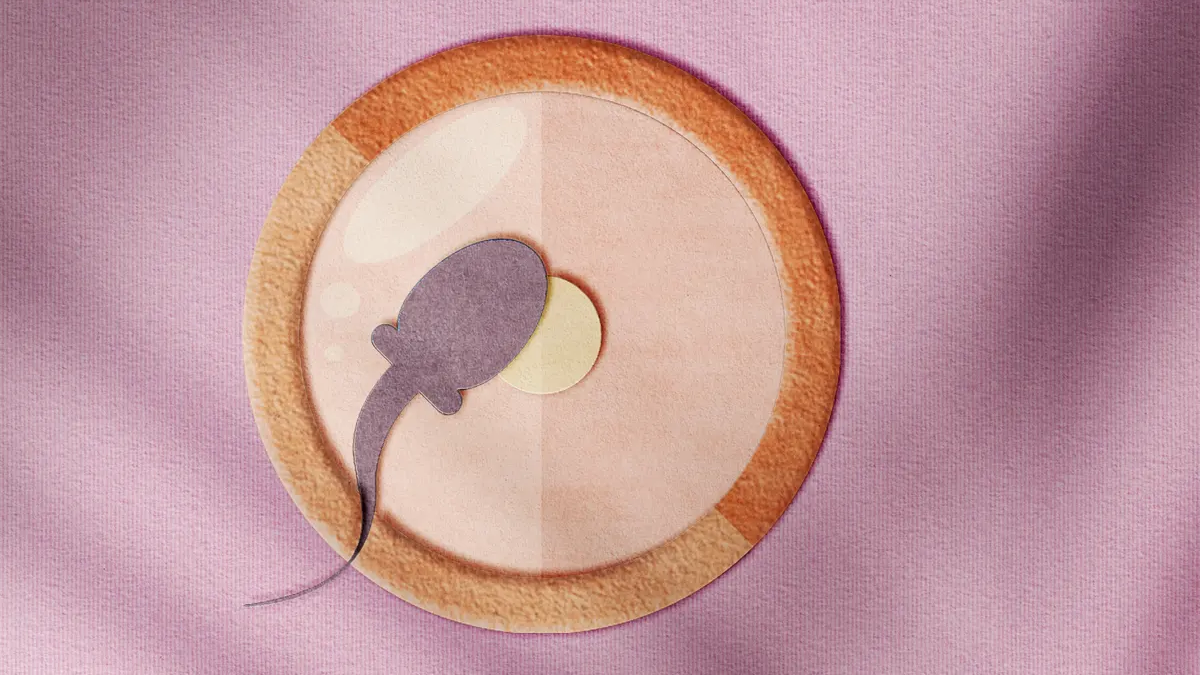
As you get older, your sperm quality can change. Just like other parts of your body, your reproductive system ages too.
Overall Changes
- After the age of 40, men often start to see a drop in sperm count. It’s like your body’s production line slows down a bit.
- Your sperm’s swimming skills can decline. This means they might have a harder time reaching and fertilizing the egg. Think of it like an aging athlete who can’t run as fast as they used to.
- The shape of sperm can get a bit wonky with age. Older men tend to have more sperm with abnormal shapes, which can make it harder for them to fertilize an egg.
- The DNA in your sperm can become more fragmented. This can make conception more difficult and affect the health of the embryo (Frontiers). It’s like having a book with missing pages—things just don’t work as smoothly.
Other Possibilities
- As the years go by, your body gets worse at fighting off oxidative stress, which can damage sperm cells. Including more antioxidants in your diet can help, but the aging process makes this battle tougher
- Testosterone levels naturally drop with age. This can reduce sperm production and affect overall reproductive health. Lower testosterone can also lead to reduced libido and energy levels.
- The amount of semen you produce can decrease, which means fewer sperm to fertilize an egg. This can be due to changes in the prostate and seminal vesicles, which produce most of the fluid in semen.
Understanding these changes can help you make better decisions about your reproductive health. Keeping a healthy lifestyle, eating a diet rich in antioxidants, and minimizing exposure to harmful substances are important in keeping your sperm healthy as you age. Regular check-ups with a healthcare provider can also help.
Additional Factors
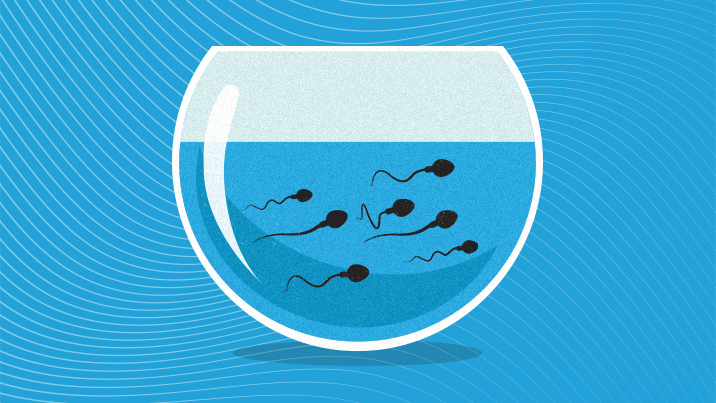
- Jobs that involve regular exposure to industrial chemicals, solvents, and heavy metals can harm sperm health. For example, men working in agriculture, painting, or manufacturing.
- Occupations that involve long exposure to heat, such as baking, welding, or driving trucks, can affect sperm production and quality because of increased scrotal temperature.
- Drinking too much alcohol regularly can lead to lower testosterone levels and poor sperm production. It can also increase oxidative stress and DNA damage in sperm.
- Smoking cigarettes introduces toxins into the body that can reduce sperm count, motility, and morphology. This included second-hand smoke.
- Recreational drugs, including marijuana and anabolic steroids, can hit sperm production and quality hard.
5 Sperm Health Myths vs Facts
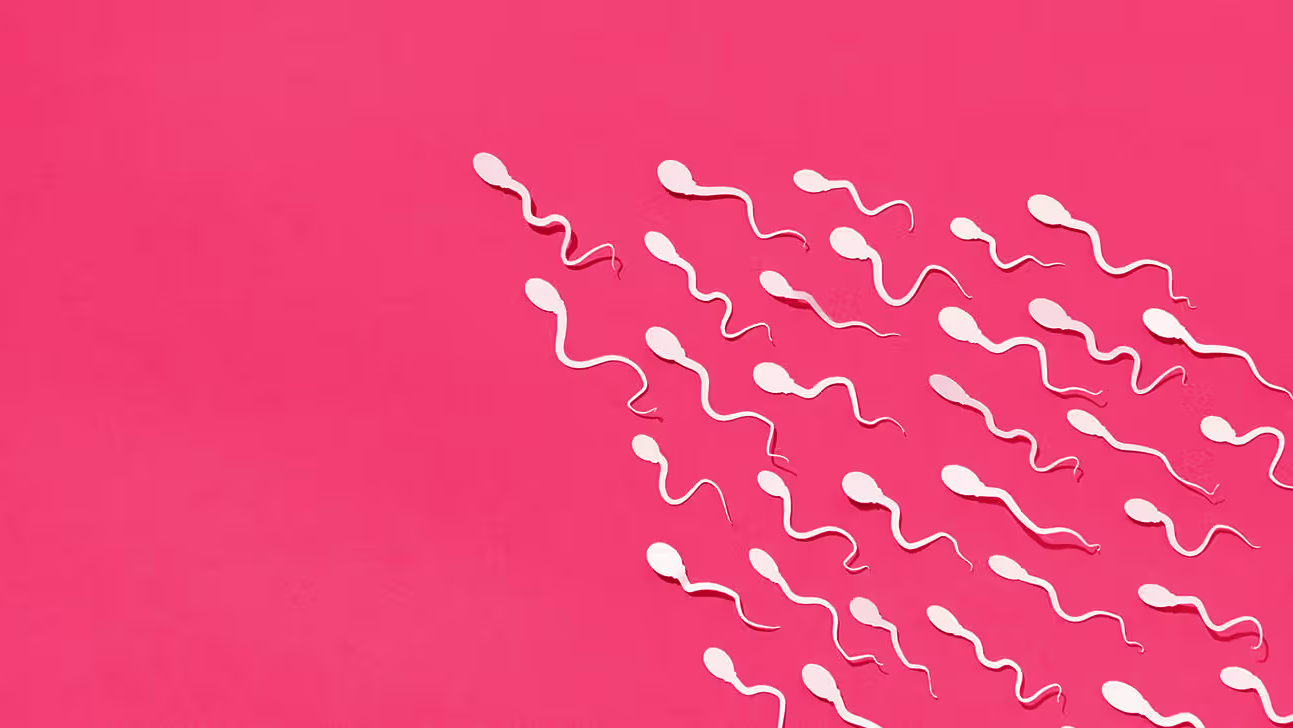
Fact: Tight underwear can increase the temperature around the testes, which can negatively affect sperm production and quality. Switching to looser underwear, like boxers, can help keep things cooler and potentially improve sperm health
Fact: What you eat can definitely affect your sperm health. Diets high in processed foods, sugars, and trans fats can harm sperm, while diets rich in fruits, vegetables, and healthy fats can improve sperm quality
Fact: Sperm quality is crucial for all types of conception, including assisted reproductive technologies like IVF and ICSI. Poor sperm quality can lead to lower success rates with these treatments.
Fact: Sperm quality can fluctuate quite a bit over short periods due to things like illness, stress, and changes in diet or lifestyle. Monitor your health to make sure there are no red flags
Fact: Frequent ejaculation doesn’t necessarily lower sperm quality. In fact, regular ejaculation can help maintain healthy sperm by preventing the build-up of older sperm cells, which might be less motile and have more DNA fragmentation.
Closing Thoughts
Well, there you have it – the major ways that what we do and even where we live can affect the quality of someone’s sperm. And while it’s pretty much impossible to fight against every thing, men can pick and choose their battles that also lend to better, overall health. If you want to learn ways to make better life choices to support your swimmers, check out the articles below…
Want More Useful Articles?
- 10 Tips For Healthy Sperm – How to Make Your Swimmers Stronger
- Is Sperm Good for the Skin? Looking at Both Sides of the Cum Coin
- How to Donate Sperm – It’s Way Harder than You Think

![image-74-e1718115837849[1]](https://www.lovense.com/sex-blog/wp-content/uploads/2024/06/image-74-e17181158378491-1.png)
